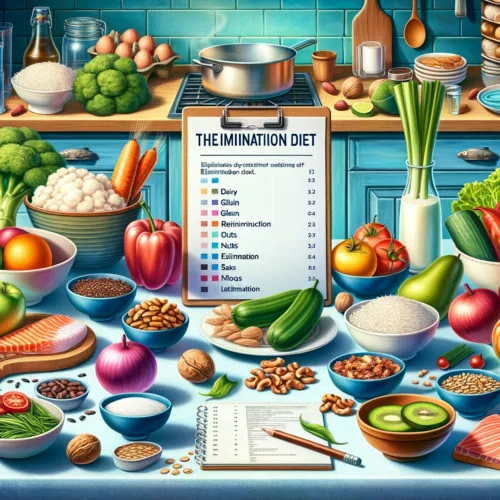In a world where diets and strict eating rules have become the norm, intuitive eating offers a completely different approach to food and our relationship with our own bodies. This method is becoming increasingly popular among those who are tired of endless restrictions and want to develop a healthy attitude towards food. But what exactly is intuitive eating, in simple terms, and why is it attracting so much attention?
What is Intuitive Eating?
Intuitive eating is not just another diet or meal plan. It’s a holistic philosophy that teaches us to listen to our body’s signals and trust its wisdom. This approach is based on the idea that our bodies have an innate ability to regulate food intake and maintain a healthy weight without external restrictions and rules.
The concept of intuitive eating was developed in 1995 by dietitians Evelyn Tribole and Elyse Resch. They noticed that traditional diets often lead to unhealthy relationships with food and negative body image. Intuitive eating offers an alternative—a way of eating that respects both the physical and emotional needs of a person.
The Core Principles of Intuitive Eating
Intuitive eating is based on ten key principles:
- Reject Diet Mentality: The first step is to reject the idea that there is a “right” way to eat or that certain foods are “forbidden.”
- Honor Your Hunger: Learn to recognize the physical signs of hunger and respond to them in a timely manner.
- Make Peace with Food: Allow yourself to eat what you truly want without feeling guilty or ashamed.
- Challenge the Food Police: Stop categorizing food as “good” or “bad.” All foods can have a place in a healthy diet.
- Respect Your Fullness: Learn to notice signals of fullness and stop eating when you feel satisfied.
- Discover the Satisfaction Factor: Enjoy the taste and texture of food. This is the key to feeling satisfied with your meals.
- Cope with Your Emotions with Kindness: Find ways to deal with stress and emotions without turning to food for comfort.
- Respect Your Body: Accept your body as it is, instead of striving for unrealistic ideals.
- Movement—Feel the Difference: Engage in physical activity for joy and health, not just for burning calories.
- Honor Your Health with Gentle Nutrition: Choose foods that are not only tasty but also beneficial for your body.
How Does Intuitive Eating Work?
With intuitive eating, eating becomes a natural and enjoyable process, rather than a constant battle with oneself and one’s desires. Instead of following strict rules about what, when, and how much to eat, you learn to trust your body’s signals.
A key aspect of intuitive eating is distinguishing between physical and emotional hunger. Physical hunger is when your body genuinely needs energy. It develops gradually and can be satisfied with various foods. Emotional hunger, on the other hand, arises suddenly, is often tied to specific foods, and does not go away even after eating.
Intuitive eating also teaches us to be more mindful while eating. This means eating slowly, without distractions, paying attention to the taste, texture, and aroma of food. This approach helps you better recognize signals of fullness and get more pleasure from eating.
Results of Intuitive Eating
The results of intuitive eating can be quite impressive, although it’s important to remember that they can vary from person to person. Many people report the following positive changes:
- Improved Relationship with Food: People often find that they stop obsessing over food and feeling guilty after eating.
- Reduced Stress Levels: Letting go of strict eating rules can significantly reduce anxiety and stress related to food.
- Weight Stabilization: Although intuitive eating is not aimed at weight loss, many people find that their weight naturally stabilizes at a healthy level for them.
- Improved Physical Health: Research shows that intuitive eating can lead to improved cholesterol levels, blood pressure, and overall well-being.
- Increased Self-Esteem: Accepting your body and giving up constant attempts to change it often leads to significant improvements in self-esteem and confidence.
Reviews of Intuitive Eating
Reviews of intuitive eating from those who have tried this approach are often positive. Many note that this method has helped them:
- Free themselves from constant thoughts about food and diets
- Learn to enjoy food without guilt
- Improve their relationship with their own body
- Find a more stable and comfortable weight without exhausting diets
- Improve their overall physical and emotional state
However, it is important to note that some people find the transition to intuitive eating challenging, especially if they have a long history of dieting and restrictions. Many note that it takes time and patience to relearn to trust their body and its signals.
How to Start Intuitive Eating?
If you decide to try intuitive eating, here are some detailed tips to help you get started:
- Give Up Diets and “Forbidden” Foods: Throw away all diet books and stop following social media accounts that promote restrictive eating.
- Learn to Recognize Hunger and Fullness Signals: Start keeping a food diary where you note not only what you eat but also how hungry you are before eating and how full you feel afterward.
- Eat Slowly and Mindfully: Try to eat without distractions, focusing all your attention on the eating process. Enjoy the taste, aroma, and texture of each bite.
- Don’t Judge Yourself for Food Choices: Remember that there are no “bad” foods. If you want to eat something “unhealthy,” allow yourself to do so without guilt.
- Find Ways to Deal with Stress without Turning to Food: This can be meditation, yoga, walks in the fresh air, or any other activity that helps you relax.
- Be Patient with Yourself: The transition to intuitive eating is a process that takes time. Do not expect immediate results and do not scold yourself for “mistakes.”
- Seek Support: Consider working with a dietitian or psychologist specializing in intuitive eating, especially if you have a history of eating disorders.
Conclusion
Intuitive eating is not a magic solution to all problems with weight and food. It’s a long journey toward healthier relationships with food and your body. It teaches us to trust our bodies and their signals, frees us from the stress associated with diets, and helps us find balance in eating.
This approach can be especially beneficial for those who are tired of constant diets and restrictions, and who want to improve their relationship with food and their bodies. However, it is important to remember that each person is unique, and what works for one may not be suitable for another.
If you decide to try intuitive eating, give yourself time to adapt and be patient with yourself in the learning process of this new approach. Remember that the goal is not to achieve the perfect weight or body shape but to develop healthy, harmonious relationships with food and yourself.















